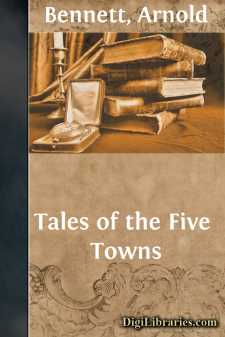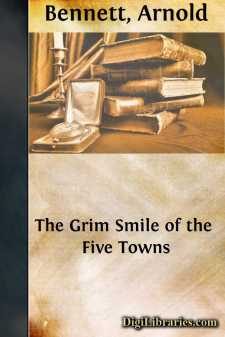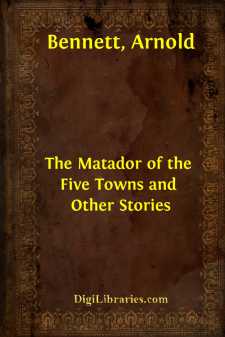Categories
- Antiques & Collectibles 13
- Architecture 36
- Art 48
- Bibles 22
- Biography & Autobiography 813
- Body, Mind & Spirit 142
- Business & Economics 28
- Children's Books 17
- Children's Fiction 14
- Computers 4
- Cooking 94
- Crafts & Hobbies 4
- Drama 346
- Education 46
- Family & Relationships 57
- Fiction 11829
- Games 19
- Gardening 17
- Health & Fitness 34
- History 1377
- House & Home 1
- Humor 147
- Juvenile Fiction 1873
- Juvenile Nonfiction 202
- Language Arts & Disciplines 88
- Law 16
- Literary Collections 686
- Literary Criticism 179
- Mathematics 13
- Medical 41
- Music 40
- Nature 179
- Non-Classifiable 1768
- Performing Arts 7
- Periodicals 1453
- Philosophy 64
- Photography 2
- Poetry 896
- Political Science 203
- Psychology 42
- Reference 154
- Religion 513
- Science 126
- Self-Help 84
- Social Science 81
- Sports & Recreation 34
- Study Aids 3
- Technology & Engineering 59
- Transportation 23
- Travel 463
- True Crime 29
Tales of the Five Towns
by: Arnold Bennett
Categories:
Description:
Excerpt
I
It was an amiable but deceitful afternoon in the third week of December. Snow fell heavily in the windows of confectioners' shops, and Father Christmas smiled in Keats's Bazaar the fawning smile of a myth who knows himself to be exploded; but beyond these and similar efforts to remedy the forgetfulness of a careless climate, there was no sign anywhere in the Five Towns, and especially in Bursley, of the immediate approach of the season of peace, goodwill, and gluttony on earth.
At the Tiger, next door to Keats's in the market-place, Mr. Josiah Topham Curtenty had put down his glass (the port was kept specially for him), and told his boon companion, Mr. Gordon, that he must be going. These two men had one powerful sentiment in common: they loved the same woman. Mr. Curtenty, aged twenty-six in heart, thirty-six in mind, and forty-six in looks, was fifty-six only in years. He was a rich man; he had made money as an earthenware manufacturer in the good old times before Satan was ingenious enough to invent German competition, American tariffs, and the price of coal; he was still making money with the aid of his son Harry, who now managed the works, but he never admitted that he was making it. No one has yet succeeded, and no one ever will succeed, in catching an earthenware manufacturer in the act of making money; he may confess with a sigh that he has performed the feat in the past, he may give utterance to a vague, preposterous hope that he will perform it again in the remote future, but as for surprising him in the very act, you would as easily surprise a hen laying an egg. Nowadays Mr. Curtenty, commercially secure, spent most of his energy in helping to shape and control the high destinies of the town. He was Deputy-Mayor, and Chairman of the General Purposes Committee of the Town Council; he was also a Guardian of the Poor, a Justice of the Peace, President of the Society for the Prosecution of Felons, a sidesman, an Oddfellow, and several other things that meant dining, shrewdness, and good-nature. He was a short, stiff, stout, red-faced man, jolly with the jollity that springs from a kind heart, a humorous disposition, a perfect digestion, and the respectful deference of one's bank-manager. Without being a member of the Browning Society, he held firmly to the belief that all's right with the world.
Mr. Gordon, who has but a sorry part in the drama, was a younger, quieter, less forceful person, rather shy; a municipal mediocrity, perhaps a little inflated that day by reason of his having been elected to the Chairmanship of the Gas and Lighting Committee.
Both men had sat on their committees at the Town Hall across the way that deceitful afternoon, and we see them now, after refreshment well earned and consumed, about to separate and sink into private life. But as they came out into the portico of the Tiger, the famous Calypso-like barmaid of the Tiger a hovering enchantment in the background, it occurred that a flock of geese were meditating, as geese will, in the middle of the road....












